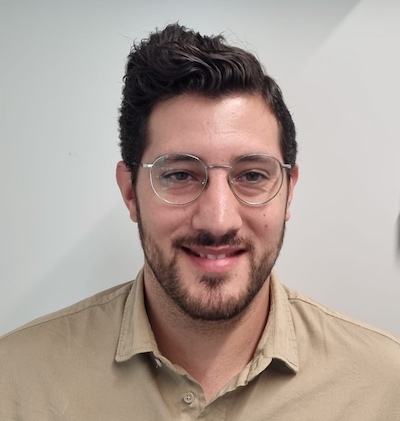Beware the ayatollahs, even when bearing gifts: Iran’s new president tries to sucker the West again
After falling for the JCPOA nuclear deal, the West can't let Iran deceive it again

Iran’s newly elected president just wrapped up a charm offensive in New York on the sidelines of the UN General Assembly, attempting to use one of the world’s most prominent stages to advertise his reform-minded platform and willingness to engage with the West.
President Masoud Pezeshkian, who in the past worked as a heart surgeon – as Western media outlets never fail to mention – was elected in July as a “reformist” and “moderate candidate, beating out several other candidates described as more “hard-line” than him.
Pezeshkian has called for “constructive relations” with Western nations and is a known supporter of the 2015 Joint Comprehensive Plan of Action (JCPOA) nuclear deal initiated by then-U.S. President Barack Obama.
In New York for the UN General Assembly (UNGA), Pezeshkian told world leaders he wants to “lay a strong foundation for my country’s entry into a new era, positioning it to play an effective and constructive role in the evolving global order.”
He reportedly went so far as to say the regime would be willing to lay down its arms if Israel was ready to do the same, promptly earning him denials and sharp rebukes from within the regime.
So could Pezeshkian truly be the spearhead of a different approach in Iran, dragging the ayatollahs behind him into a new area of reconciliation with the West?
As it is well known, Iranian elections are the opposite of free and fair, and therein lies the first indication that something may be amiss: Iran’s Supreme Leader Khamenei didn’t just allow him to win, but as Pezeshkian admitted, was crucial in advancing his candidacy in the first place.
The moderate heart surgeon isn’t some radical reformer who went against the ruling class and threatens to upend it – rather, he has always remained firmly within the boundaries set by the Supreme Leader.
While he may have tactical disagreements with the more hardline factions of the regime, he has never criticized it or its leader directly, and when in doubt, has consistently supported them.
When the Trump administration declared the Iranian Revolutionary Guards a terror group, Pezeshkian wore their uniform to parliament.
When Trump ordered the assassination of the arch-terrorist and IRGC General Qassem Soleimani, he vocally lamented it.
And when Iranians took to the street to protest the cruel regime trampling their rights, Pezeshkian urged them not to let the U.S. divide their nation, while advocating for more gentle types of repression.
Domestically, any of Pezeshkian’s reform policies have been neutered from the outset by the nomination of an overwhelmingly conservative government.
Regarding foreign affairs, the Iranian leader sent a message to the late Hezbollah leader Hassan Nasrallah, saying, “The Islamic Republic has always supported the resistance of the people of the region against the illegitimate Zionist regime.”
With the regime in dire economic straits and its internal cohesion rocked by the deaths of its former president and foreign minister, Khamenei had to decide whether to double down on another hardline president – or maybe, try to deceive the world into giving his regime some breathing space, while providing internal critics an outlet.
So, the Supreme Leader made a shrewd move by getting a president elected who could convince the world that a course change was imminent, while under the radar, the regime continued its race toward nuclear breakout.
Khamenei even slightly adjusted his own public comments in recent months to fit this new approach. In a recent speech, he warned his government to “not trust the enemy,” while adding that “this does not mean that we cannot interact with the same enemy in certain situations.”
Despite the rhetorical games, it is clear that the regime did not change and continues to pursue its efforts of dominating the region through its proxy forces to reach its goal of destroying the Jewish state.
In Israel, no one was fooled. The nation is well aware of the dangers of a nuclear Iran.
Even if it didn’t mean Israel’s immediate destruction, it would give its proxies a nuclear umbrella to repeat Oct. 7-style massacres, while Israel couldn’t allow itself to react as resolutely as it has these past months – especially in Lebanon.
The rest of the world would do well not to fall for Iranian deceptions a second time, after the JCPOA.
It should, instead, remember the ancient lesson of the Trojan horse, and not trust the ayatollah regime even if it comes to the gates of the UN bearing supposed gifts.

Hanan Lischinsky has a Master’s degree in Middle East & Israel studies from Heidelberg University in Germany, where he spent part of his childhood and youth. He finished High School in Jerusalem and served in the IDF’s Intelligence Corps. Hanan and his wife live near Jerusalem, and he joined ALL ISRAEL NEWS in August 2023.













